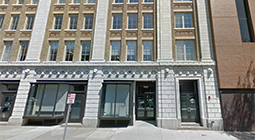Negotiation
RAF reviews the provisions of each award for consistency with the proposal and Institute policies. RAF is responsible for negotiating the terms and conditions of the agreement with the sponsor and coordinating these negotiations with the PI and, when appropriate, legal counsel and other Institute officials.
Before an award is issued, informal negotiations between the PI and the sponsor's program official may take place regarding issues such as the scope of work, project objectives, or budget. PIs are cautioned not to negotiate other matters, since conflicts with the institutional policy may develop that make subsequent negotiations difficult. Negotiations conducted without RA&F involvement are unofficial and not binding and should be carefully explained as such to sponsors.
RAF considers a number of criteria when judging the acceptability of an award. Major issues are discussed below.
Publications
Sponsored program results, such as theses and technical papers, must be publishable in the open literature within a reasonable time period. While short periods for review of research results by a sponsor may be allowed to protect proprietary information, patents, and copyrights, restrictions on disclosure of research results are unacceptable and will not be accepted by the Institute.
Intellectual Property
It is Rensselaer's policy that title to patents and copyrights developed under sponsored programs remain with Rensselaer. Contact The Office of Technology Commercialization (OTC) for further details.
Proprietary Information Furnished by Sponsors
The acceptance of proprietary or confidential information belonging to a sponsor is discouraged because it can limit the free use of information and data by faculty, students, and staff.
However, if a research project is considered highly desirable by the Institute, proprietary information may be received if certain conditions are met and the Institute retains the freedom to publish. These include:
-
Rensselaer's obligation to maintain confidentiality generally should not extend more than three years beyond the termination of the agreement.
-
Information may be disclosed to those within the Institute who are engaged in the conduct of the research.
-
Rensselaer and all others authorized to have access to the information shall be released from any obligation of confidence when such information becomes public domain, is known to the Institute prior to disclosure by the sponsor, is independently developed by the Institute, is furnished to Rensselaer by a third party not restricted from disclosure by the sponsor.
-
Proprietary information must be marked and designated in writing as confidential. The PI must be able to refuse such information. Most sponsors will require those individuals having access to the information to sign a confidentiality agreement.
Termination for Default
Rensselaer conducts sponsored programs on a "best efforts [j4]" basis. Therefore, Rensselaer does not accept termination for default or cause clauses that contain financial penalties.
Warranties and Inspections
Because Rensselaer conducts projects on a "best efforts" basis, the Institute does not extend warranties for performance, deliverables, or products to the sponsor or any third parties.
Rensselaer will accept inspection clauses that allow the sponsor to inspect and evaluate the work and the premises where the project is being performed, during normal business hours. We will not accept inspection clauses that can result in rejection of the work, require corrective action by Rensselaer, or hold the Institute liable for any additional costs incurred by the sponsor.
Insurance and Indemnification
Rensselaer will accept responsibility for the actions and activities of its employees during the conduct of a sponsored project. Indemnification obligations are addressed on a case by case basis.
Long Term Obligations
Sponsors may want contract terms, particularly those concerning intellectual property, indemnification, and confidentiality, to extend beyond the contract termination date. Rensselaer tries to keep such obligations to a reasonable length of time appropriate for the project. The common exception is the requirement to keep records available for audit.
Award Receipt
Most sponsors forward the notifications of award (NOA) documents directly to RAF. However, if you or your department receives the original copy of the award, it is important for you to forward original documents to RA&F, so the award process can begin.
A grant administrator from the awards team will review the provisions of each award for consistency with the proposal and Institute policies.
The National Science Foundation
NSF is the steward of most of the major federal agencies' general terms and conditions. They update this information, along with the FDP matrix on the NSF website.
